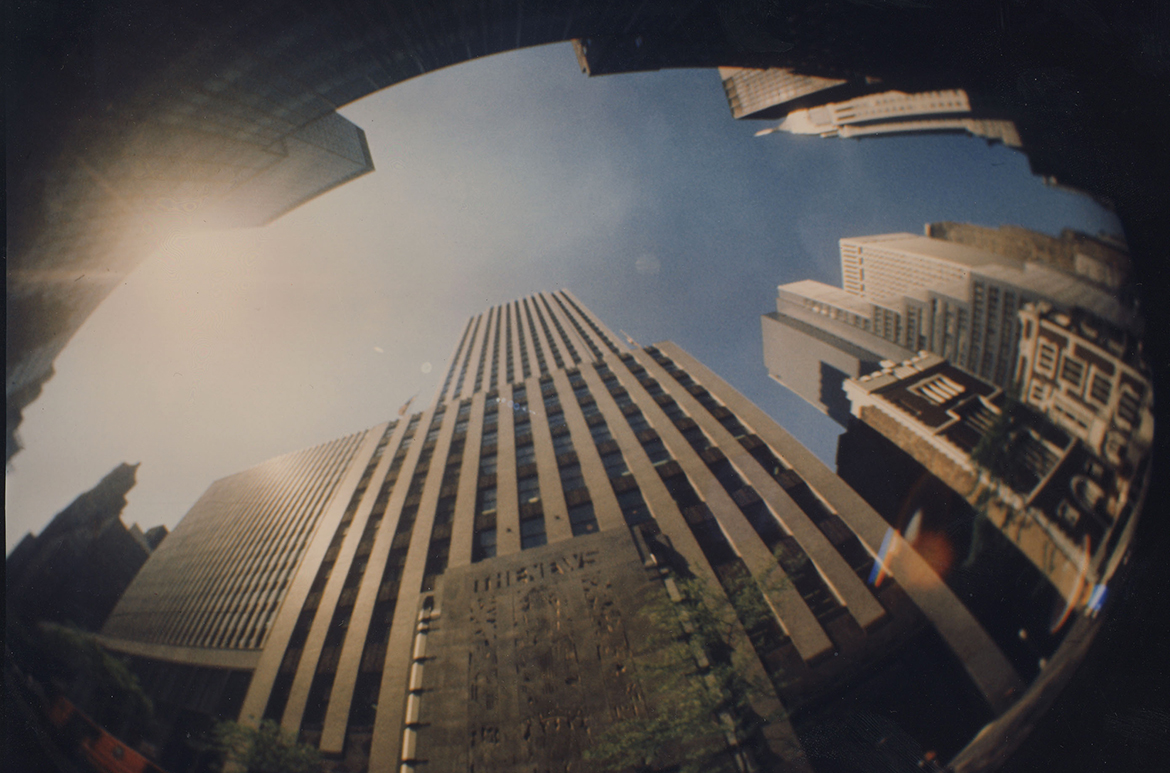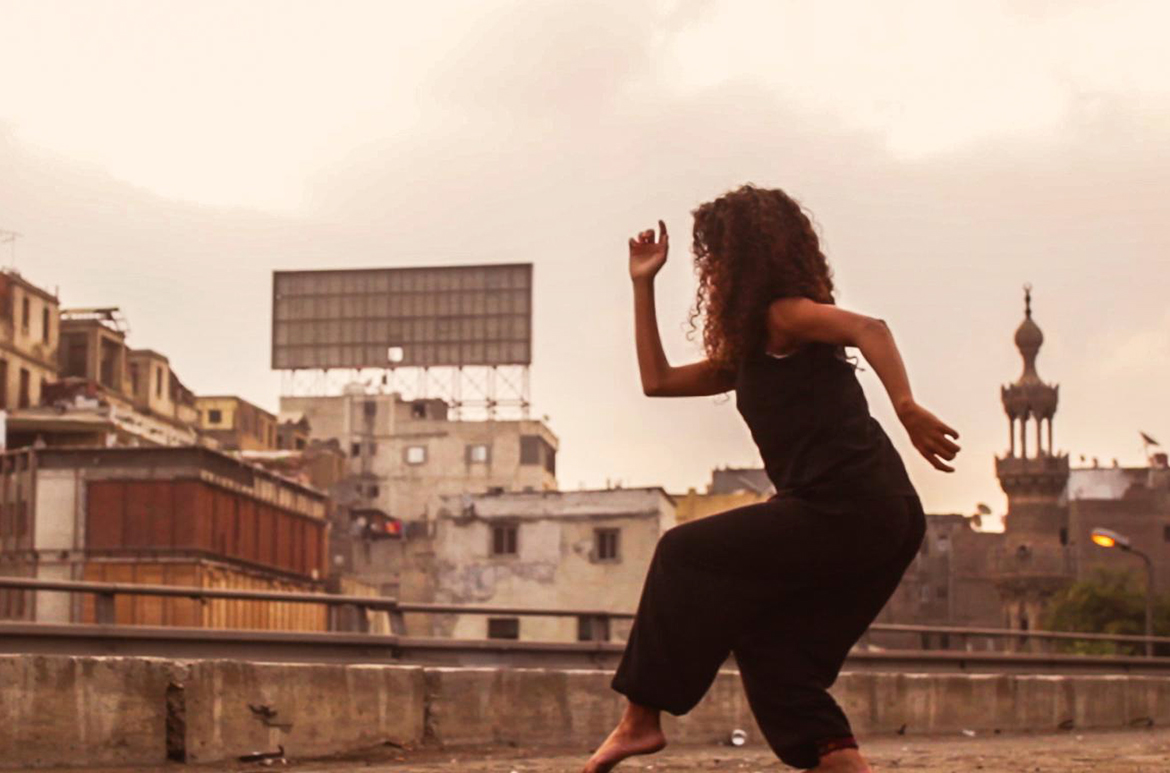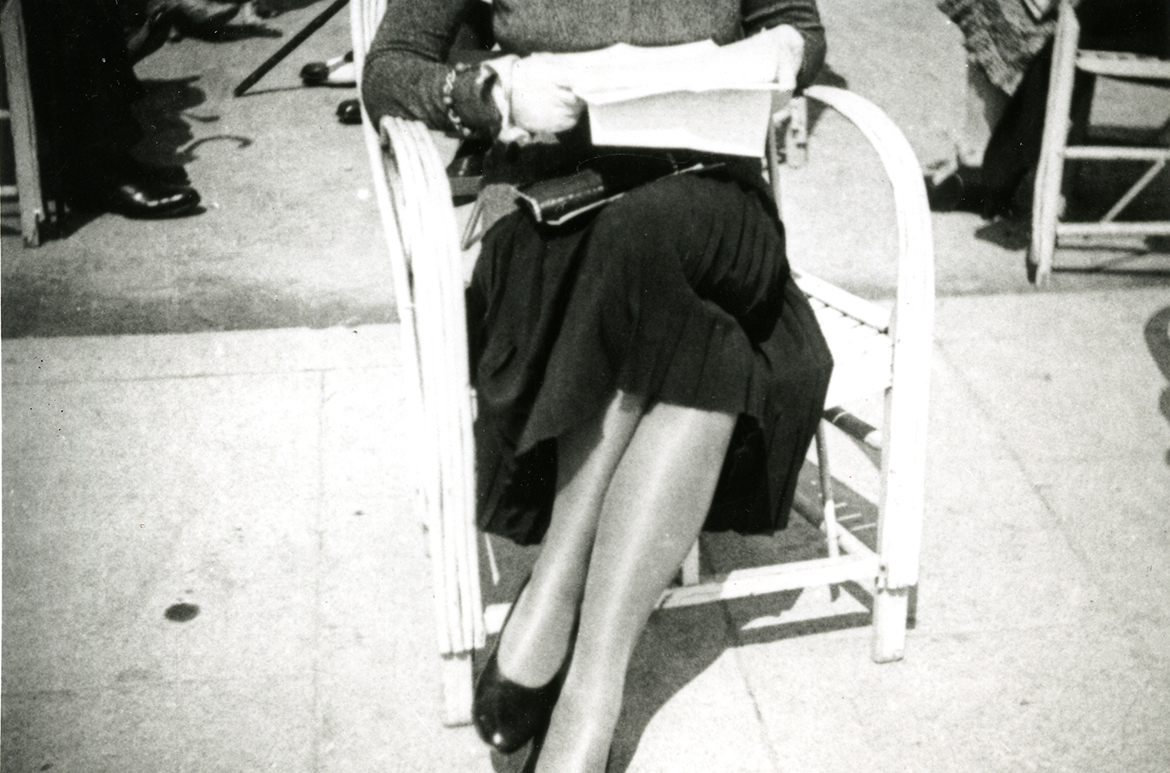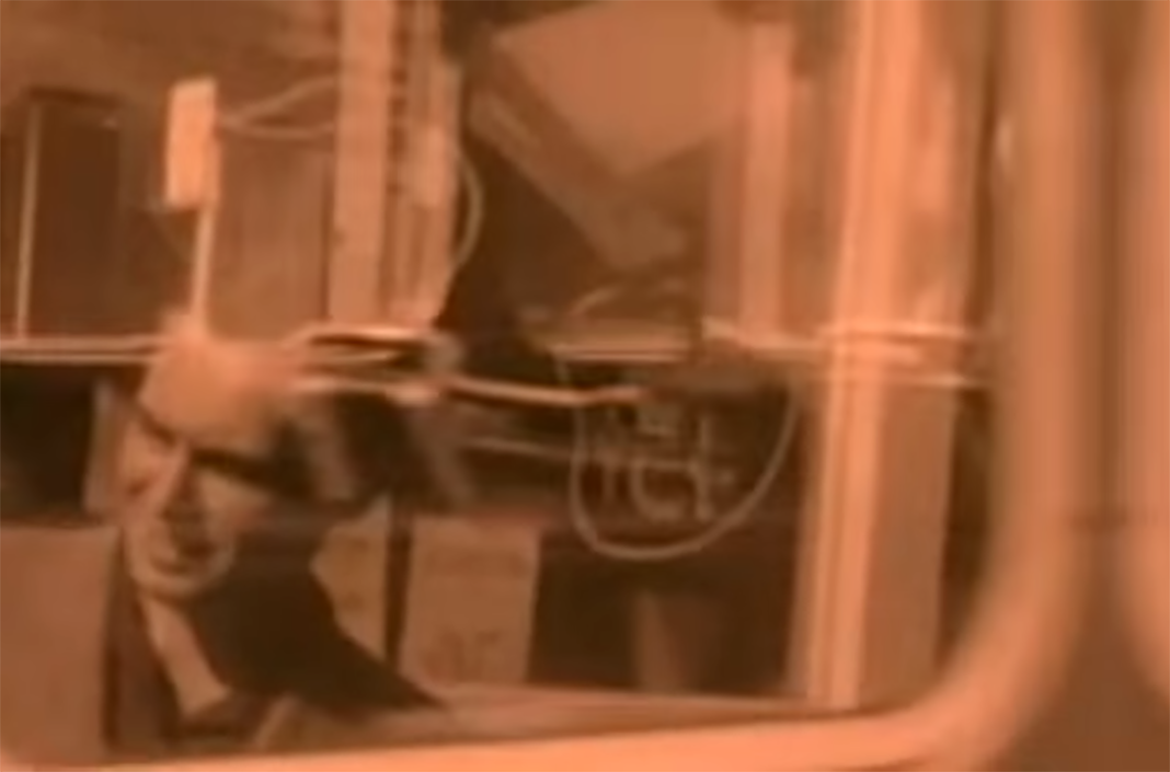Live Music & Film with electronic, experimental musician Madeleine Cocolas
On Sunday 28 May at the Australian Cinémathèque, Gallery of Modern Art in Brisbane, our fourth City Symphony Live Music & Film event features the music of composer and musician Madeleine Cocolas. Madeleine is crafting a live score for the films boasting pulsating synthesisers, lush soundscapes, experimental electronics and field recordings to subtly evoke the tenor of each city explored in the four films screening.
Get tickets to City Symphony Live Music & Film series
‘Live Music & Film: City Visions, Cairo to New York’ brings together a selection of diverse cinema from across the world. Daybreak Express 1953 is a short delight at only 5 minutes long and showcases the city of New York waking up. It’s the first film made by acclaimed director D.A. Pennebaker (who later went on to make music documentaries — most notably Don’t Look Back 1967 with Bob Dylan). A Skewed Conversation 2019 captures Cairo as a contemporary dancer uses the physical space around her to influence her moves navigating busy highways, back alleys, cafes, and street scenes of the bustling Egyptian capital. Visions of a City 1978 deftly uses reflection — from shop windows, car bumper bars and busses sliding past the camera — to uniquely present city life. A Propos de Nice (On the Subject of Nice) 1930, made by influential French filmmaker Jean Vigo, subversively juxtaposes behind the scenes hardships of working-class life alongside upper-class enjoyment of the popular French tourist town Nice. At turns elegant, raucous and yet sometimes sobering, A Propos de Nice is a fascinating look at French fashion, habits and culture of the 1930s.

We spoke with electronic musician Madeleine Cocolas about her preparations for crafting these live scores and what moved her within the films to create soundscapes for each.
Rosie Hays / Your selection of films are four short films. They’re fairly different types of films. What were your first impressions of the films?
Madeleine Cocolas / The films are indeed very different which was great as it meant I could carve a unique sound for each individual one.
For Daybreak Express 1953 I was inspired by the joyfulness I felt when watching the film. My hope is that my music conveys a sense of joy and wonder for the day ahead. I have used some of the original train sounds and sampled them throughout my score, including in the percussive elements that come in later which I feel helps tie the music to the visuals.
Director: D A Pennebaker ‘Daybreak Express’ 1953

For A Skewed Conversation 2019 I was struck by the rhythm of the film and in many ways that was set by the dancing of the protagonist. This film felt like it needed some rhythmic elements to support the dancing so strong percussive rhythms became a feature of this score.
Directors: Eman Hussein, Ahmed Hamed ‘A Skewed Conversation’ 2019

A Propos de Nice (On the Subject of Nice) 1930 felt like it had a strong narrative arc which set up scenes of extreme wealth and then contrasted that wealth and luxury with scenes of poverty, which I found to be very poignant. The last third of the film brings back scenes of extreme wealth but these scenes are tarnished by what we have previously seen and therefore take on darker tones. I also felt this film had a few absurdist moments to it and really wanted to convey that in the score as well. I composed the score to this film with the narrative arc in mind, so that the first and third ‘acts’ had a feeling of careless abandon whilst the middle act was much darker with more emotional resonance.
Director: Jean Vigo ‘A Propos de Nice’ 1927

Visions of a City 1978 felt quite textural and introspective to me. I thought it was so interesting that it was filmed through different reflective surfaces so that the viewer is almost experiencing things indirectly and second hand. I wanted to this score to feel a little more introspective and detached as a result.
Director: Larry Jordan ‘Visions of a City’ 1978

RH / One of my absolute favourite films in the City Symphony program is Daybreak Express. This has a very distinctive soundtrack already — it’s a great Duke Ellington song. Was this daunting? Did you watch the film without sound or did listening to the music give you inspiration?
MC / I watched the film once with Duke Ellington’s soundtrack which is of course such a great piece and works really well with the film. After that I jumped straight into bringing my vision to the film. I didn’t find the process of composing a score for Daybreak Express to be daunting, the reason being that although the original score is so fantastic I decided to do something entirely different for my score. I would have found it much more daunting if I were to try to create a jazz score for it, but because I’m doing something very different to the original it’s much easier to feel free to create your own vision without being concerned about it being compared.
RH / You’ve crafted a live score for a film previously. I believe it was in the United States? I’d love to hear which film it was and how you approached the score for a well-known film.
MC / When I lived in Seattle I was commissioned by the North West Film Forum to compose and perform a live score to a silent film of my choosing. I chose the classic Hitchcock film The Birds which doesn’t actually have a traditional score (although notably the bird sounds were created using a Mixtur-Trautonium synthesiser). I absolutely adore ‘The Birds’, and whilst it’s perfect as it is, it was a wonderful process creating my own score for it. Rather than creating a traditional score I created a reverb laden synth score to bring my own vision to the film.
RH / I’d love to hear what style of music you’ll play, what instruments you’ll use and how you decided on what you would craft for the films.
MC / Each film will have a slightly different musical flavour, but generally speaking they will be a mix of synth, electronics, field recordings, keys and ambient vocals. I’ll be using a synthesiser, a laptop to play processed sounds and electronics and I’ll also be singing as well. The music for all four films could be broadly categorised as having experimental electronic, post classical and ambient influences.
For more information about the films and the musicians see our event listing for Live Music & Film: City Visions, Cairo to New York
Rosie Hays is Associate Curator, Australian Cinémathèque, QAGOMA
Upcoming live music & film
Live Music & Film: City Visions, Cairo to New York 1930–2019
Live Music & Film: People on Sunday 1930
Live Music & Film: The Poetic Cities of Joris Ivens 1929
Live Music & Film: Calcutta 1969
Live Music & Film: Berlin, Symphony of a Great City 1927
Live Music & Film: Nothing But Time 1921–2012
Live Music & Film: Man With a Movie Camera (with violin) 1929
City Symphony special ticket offer
See the full series and save! Buy 5 to 9 tickets and receive a 10% discount. Buy 10 tickets and receive a 20% discount. Get tickets
The Australian Cinémathèque
The Queensland Art Gallery | Gallery of Modern Art (QAGOMA) is the only Australian art gallery with purpose-built facilities dedicated to film and the moving image. The Australian Cinémathèque at GOMA provides an ongoing program of film and video that you’re unlikely to see elsewhere, offering a rich and diverse experience of the moving image, showcasing the work of influential filmmakers and international cinema, rare 35mm prints, recent restorations and silent films with live musical accompaniment by local musicians or on the Gallery’s Wurlitzer organ originally installed in Brisbane’s Regent Theatre in November 1929.
Featured image: (left) Production still from Visions of a City 1978, Director: Larry Jordan, Image courtesy: Light Cone / (right) Madeleine Cocolas, Photograph: Vanessa at Vivid Visual
#QAGOMA
